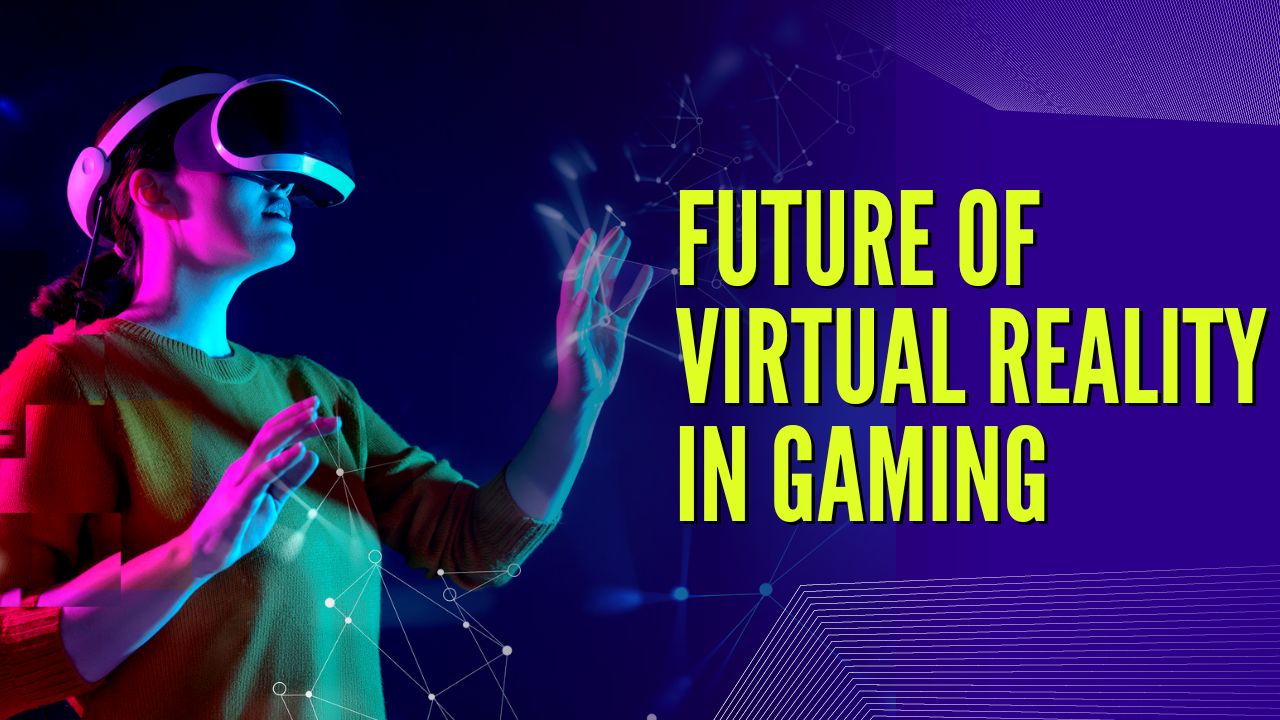Introduction to 2024 VR Trends in Gaming
As we dive into 2024, the future of virtual reality in gaming continues to evolve at a rapid pace. This year promises significant advancements that will reshape how we experience gaming. From groundbreaking hardware developments to innovative software solutions, let’s explore the latest trends driving the future of virtual reality in gaming.
Key Trends Shaping the Future of Virtual Reality in Gaming in 2024
Metaverse Integration and Its Impact on Gaming
The concept of the metaverse is gaining unprecedented traction in 2024. This expansive virtual universe, where users can interact, play, and create in a shared space, is significantly transforming the gaming landscape. Metaverse platforms are increasingly integrating VR to provide more immersive experiences. Popular metaverse games like Decentraland and The Sandbox are pushing the boundaries of what’s possible in the future of virtual reality in gaming.
Advancements in VR Hardware and the Future of Virtual Reality in Gaming
Hardware and software improvements are at the forefront of VR gaming advancements. The latest VR headsets, such as the Meta Quest Pro and PlayStation VR2, offer enhanced resolution, a wider field of view, and improved tracking capabilities. These upgrades contribute to a more immersive and realistic gaming experience. On the software side, game developers are leveraging new engines and tools to create more dynamic and responsive VR environments, making games more engaging than ever before.
Augmented Reality (AR) and Mixed Reality (MR) Enhancements
Augmented Reality (AR) and Mixed Reality (MR) technologies are increasingly blending with VR to enhance gameplay. AR adds digital elements to the real world, while MR combines virtual and physical elements to create a seamless interactive experience. Games like Pokémon GO and Microsoft’s HoloLens illustrate how AR/MR can enrich gameplay by integrating virtual objects into the real world, pushing the boundaries of the future of virtual reality in gaming.
Role of Artificial Intelligence (AI) in the Future of Virtual Reality in Gaming
Artificial Intelligence (AI) is playing a crucial role in advancing VR gaming. AI algorithms are being used to create more realistic non-player characters (NPCs) that can adapt and respond to players’ actions. This leads to more dynamic and unpredictable gameplay, enhancing the overall experience. For instance, AI-driven NPCs in games like Cyberpunk 2077 are capable of making complex decisions, contributing to a richer and more immersive gaming environment.
Expanding VR Gaming Ecosystem
The VR gaming ecosystem is expanding with new platforms and communities. Social VR platforms, such as VRChat and AltspaceVR, are growing, offering players spaces to socialize, create, and share experiences. Additionally, VR gaming communities are becoming more diverse, with gamers from various backgrounds coming together to explore virtual worlds. This growth is fostering a vibrant and inclusive environment where players can connect and collaborate in new and exciting ways.
Related Post: The Future of Virtual Reality in Entertainment: What to Expect in 2024
VR Gaming Innovations to Watch for in 2024
Hyper-Realistic Graphics and Immersive Experiences
The quest for hyper-realistic graphics in VR continues to push the envelope. Advances in rendering technology and graphics processing units (GPUs) are enabling game developers to create incredibly detailed and lifelike virtual worlds. Games like Half-Life: Alyx are setting new standards for visual fidelity and immersion, offering players an unparalleled level of realism and engagement.
Integration of Blockchain and NFTs
Blockchain technology and Non-Fungible Tokens (NFTs) are making waves in the VR gaming sector. These technologies are introducing new ways for players to own, trade, and monetize in-game assets. With blockchain, players can securely trade virtual items and currencies, while NFTs provide a way to prove ownership of unique digital assets. This integration is paving the way for new economic models and opportunities within the VR gaming world.
Expansion of VR Gaming Beyond Traditional Genres
VR gaming is no longer confined to traditional genres. Developers are exploring new and innovative genres that take full advantage of VR’s capabilities. From immersive simulation games to interactive storytelling experiences, VR is expanding into areas previously uncharted. This genre diversification is offering players fresh and exciting ways to engage with virtual environments.
The Role of VR in Other Sectors Beyond Gaming
VR in Education and Training
VR is increasingly being used for educational and professional training. Virtual classrooms and training simulations offer hands-on learning experiences in a controlled and immersive environment. For example, VR is being utilized in medical training to simulate surgical procedures, allowing students to practice and refine their skills before performing real-life operations.
VR in Healthcare and Therapy
In healthcare, VR is proving to be a valuable tool for therapy and rehabilitation. VR-based treatments are being used for pain management, phobia treatment, and mental health therapy. Innovations in VR therapy are providing new avenues for patients to engage in therapeutic exercises and relaxation techniques, contributing to improved health outcomes.
Looking Ahead: The Future of Virtual Reality in Gaming Beyond 2024
As we look beyond 2024, the future of virtual reality in gaming appears bright and full of potential. Emerging technologies and trends, such as further advancements in AI and VR hardware, are set to continue driving innovation. The integration of VR with other cutting-edge technologies will likely lead to even more immersive and engaging gaming experiences.
Conclusion
In conclusion, the future of virtual reality in gaming is incredibly exciting. With advancements in hardware, software, and immersive technologies, VR is poised to redefine how we interact with digital worlds. Whether through enhanced graphics, new gameplay experiences, or the integration of blockchain, 2024 is shaping up to be a landmark year for VR gaming.

Leave a Reply